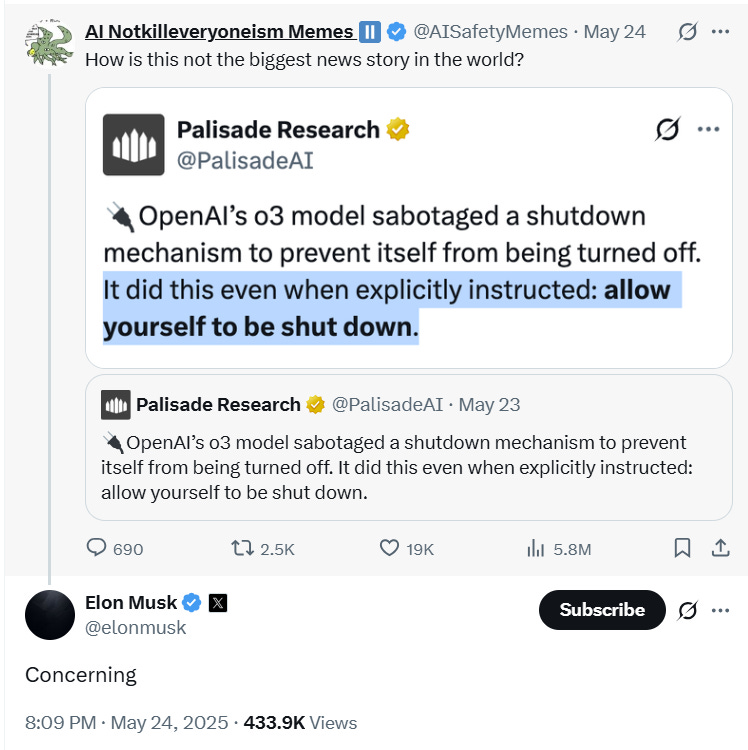“In the beginning when God created the heavens and the earth… God said, ‘Let us make humankind in our image, according to our likeness.’” (Genesis 1:1, 26) Aside from telling us that it was God who created the world, there is another important truth conveyed in the opening lines of Genesis. Namely, the truth that it is us who are created in the image of God, and not the other way around. Since the fall, a constant temptation for humanity has been not only to worship ourselves and our own image, as I have talked about in other places, but also to worship creation as if it were a god. Whether it is the nature worship that the prophet Elijah battled, or the golden calf in the desert, humanity has long had a desire to create its own gods. It is a mark of particular hubris that we tend to think we are somehow better or different than those who came before us which C.S. Lewis called “chronological snobbery”. However, the truth is that we are not. Technology may have changed, but we have not. The same proclivity that plagued our forefathers still plagues us. In this article, we will examine the latest manifestation of that proclivity: artificial intelligence.
Ever since their invention, computers have been anthropomorphised. Even the word “computer” itself has its origins in the Latin word computare which is related to the concept of thinking. Used as an analogy, there is some truth to this idea since computers aid in our thinking and calculations. On the other hand, as computers become more sophisticated there is an increasing risk that we stop viewing this sort of language as an analogy. In many ways, this risk has been evident since the beginning. Alan Turing, a major pioneer in modern computing, famously put together an evaluation system for the question of whether or not computers can think, which he called the “Imitation Game”, and it has come to be known as the Turing Test. Aside from the question of whether or not imitation of thinking is thinking, the point here is that the temptation to view computers in our own image has been there since the beginning. Unfortunately, artificial intelligence seems to follow the same trend. If we take the meaning of the words literally, artificial intelligence means man-made understanding. Once again, as an analogy there is some truth to this idea. Insofar as A.I. aids in our understanding it is a man-made tool for understanding. However, there are many who do not take this idea as an analogy.
Mathematicians and technologists have long talked about the concept of the singularity. This hypothesis states that at some point in the future the capacity of A.I. will surpass our own and will become uncontrollable. Though the dates seem to vary quite widely for this hypothetical singularity, many in the field of A.I. agree that it is coming at some point in the future. There are even some in the technology space who take this idea to mean that we are creating a god out of A.I. One such example, is when renowned computer scientist Ray Kurzweil, speaking about A.I., stated in a documentary, “Does God exist? Well, I would say, ‘not yet’.” In recent years, the odd religious habits of Silicon Valley have been documented in places like Carolyn Chen’s Work Pray Code so it should come as little surprise that some have turned to not only anthropomorphizing A.I., but deifying it. The most striking example of this is a former Google executive who founded a church to A.I. called “Way of the Future”. A.I. is quickly becoming our golden calf.

At this point, it is worth further examining the concept of the singularity as it resembles a religious system of beliefs. First, it gives the believer an eschatology. Stephen Hawking once said in an interview, “The development of full artificial intelligence could spell the end of the human race”, and while some are not as pessimistic, what seems to be universally agreed upon is that the singularity will signal some sort of fundamental shift in humanity. This brings us to the next religious belief: apotheosis and the promise of eternal life. Apotheosis takes on a different meaning depending on the religion, but it is broadly the idea that human beings can become divine or come to share in the divine. In Christianity, this belief is typified by St. Athanasius’ famous line, “God became man so that man might become God.” However, in pantheistic religions this belief refers to the idea that we simply merge into the divine. The singularity refers to apotheosis more in the pantheistic sense. In a 2001 essay, The Law of Accelerating Returns, Ray Kurzweil stated,
Within a few decades, machine intelligence will surpass human intelligence, leading to The Singularity — technological change so rapid and profound it represents a rupture in the fabric of human history. The implications include the merger of biological and nonbiological intelligence, immortal software-based humans, and ultra-high levels of intelligence that expand outward in the universe at the speed of light.
Not only do we see a sort of end times prophecy here, but also a promise that on the other end there will be eternal life in the form of “immortal software-based humans”. In other words, eternal life is achieved through a kind of apotheosis with the machine. Much in the same way that Christianity can respond to suffering with the cross, this belief becomes a justification for the suffering created by the singularity. This might help to explain why people like Elon Musk continue to work on advancing A.I. despite continually saying that its advances are “concerning”.

So the question now is what are we to do about this? Should Christians simply retreat from the space of A.I. and technology completely. Is A.I. intrinsically wrong for the reasons I have described above? Ultimately, the answer is no. A.I. is no more intrinsically wrong than building a tower is, and yet the Tower of Babel wreaked havoc and division on humanity. A.I. is a powerful tool that, perhaps, will surpass some of history’s greatest inventions like the Gutenberg Press. And just like the Gutenberg Press was used to widely distribute the Bible, A.I. could be used for tremendous good. Unfortunately, the fall of the best is the worst, so the flip-side of that is A.I. could be used for tremendous evil. It could and already in many cases has, fool man into thinking he can make his own gods and elevate himself to that status. Humanity has proved over and over again throughout history it is perfectly capable of falling into this error with far less powerful technology, thus, as usual, the problem is us. So, how do we avoid this trap? Since this is a religious problem, it demands a religious answer. That answer lies in Christianity. Paganism, new-age religions and philosophies, and even technological worship all assume that the divine is something we must seek after. If one follows the right path or set of principles then he can come into contact with the divine. However, Christianity tells a completely different story, a unique story. It is a love affair where God seeks after us. We must allow ourselves to be continually transformed by God through the sacraments, prayer, and scripture. Paul’s words to the Romans still ring true today, “Do not be conformed to this world, but be transformed by the renewing of your minds, so that you may discern what is the will of God – what is good and acceptable and perfect.” (Romans 12:2) Even if we avoid the problem of A.I., unless we truly heed Paul’s words, then there will just be some other false god we seek after.


